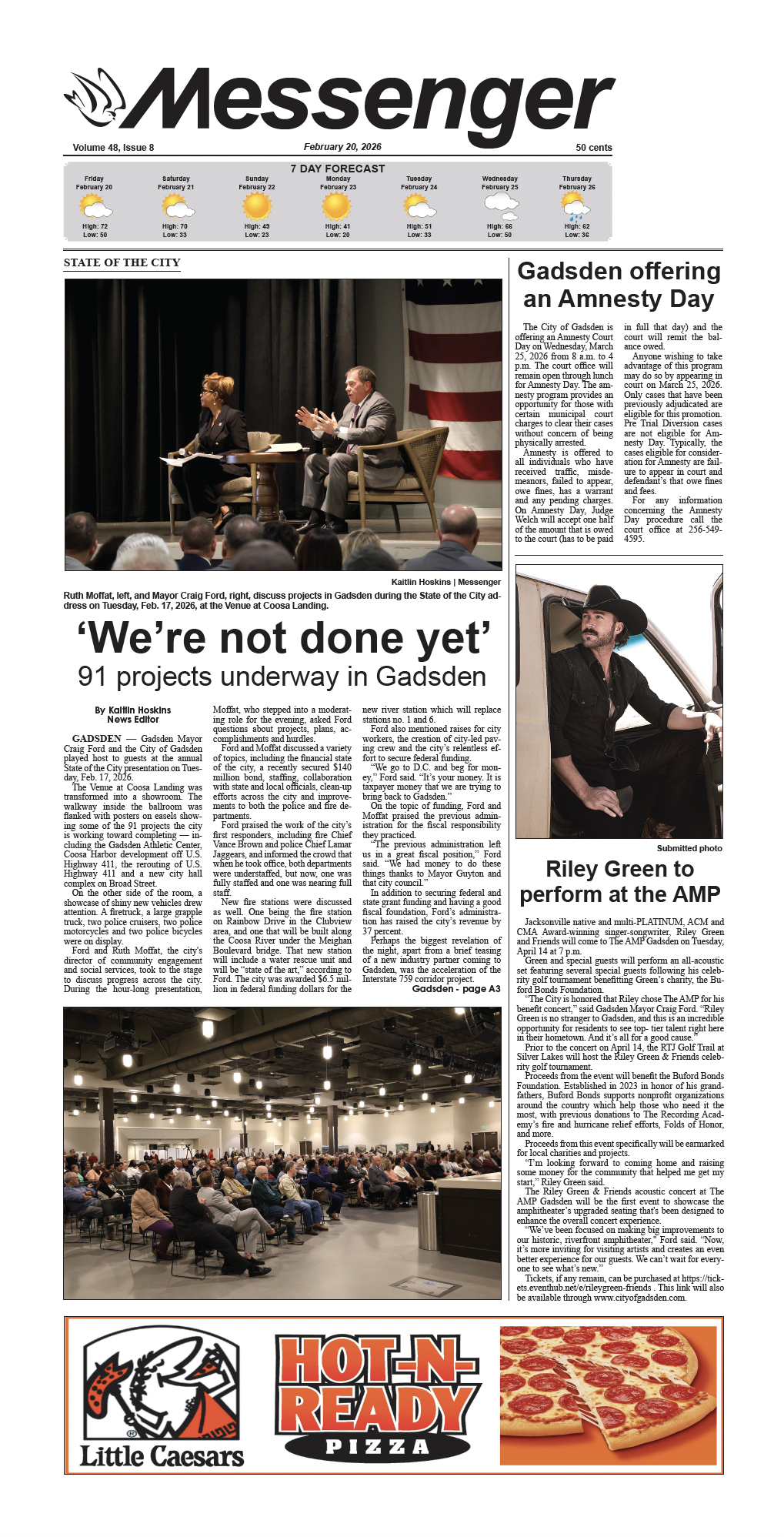By Sarrah Peters
News Editor
About 10 years ago, Glencoe local Hershel Tanner was diagnosed with trigeminal neuralgia.
According to the National Institute of Neurological Disorders and Stroke, trigeminal neuralgia is a condition that affects the fifth cranial or trigeminal nerve, after the myelin sheath of the nerve is damaged. This is sometimes a result of multiple sclerosis, a disease that causes deterioration of the nerve, or rarely a result of a brain tumor or growth that compresses the nerve. It can also be caused by a blood vessel pressing into and damaging this nerve.
The symptoms of trigeminal neuralgia are extreme pain. The first type of pain is a sporadic and sudden facial pain, that the disease is known for. The second type, is a constant ache. Some patients, like Tanner, experience both types.
“It’s a very painful thing to have,” said Tanner, mildly.
He described it as an electrical shock to the face, similar to having a cattle prod stuck to his face. The disease causes such severe pain that it is often called the suicide disease because before treatment was discovered many ended their lives to escape the pain.
Tanner’s daughter, Stephanie Hatfield, said it was scary to see her dad in such pain.
“It would bring him to his knees,” said Hatfield.
The pain was unpredictable. Tanner could go six months without pain, but it would always come back. Once it did, anything involving his face could trigger the pain, including eating and washing it. Sometimes nothing preceded the pain at all.
At the time of Tanner’s diagnosis, the only way his doctors knew of treating the disease was with medicine that dulled the pain. Tanner had some success with a medicine, but within the last two years the pain had worsened.
Tanner says that it was prayer that led him to an effective treatment. A neighbor mentioned a neurologist to Tanner that might be able to help, so Tanner made an appointment. They were unable to help, but a nurse mentioned a neurosurgeon named Dr. Swaid out of Birmingham. Within 24 hours of contacting Dr. Swaid’s office, Tanner was in his office.
Swaid completed the University of Alabama at Birmingham’s medical school in 1976, and has spent over 30 years in private practice. He has a special interest in trigeminal neuralgia, pituitary tumors, acoustic neuromas and cervical disk diseases.
Dr. Swaid was able to treat Tanner’s trigeminal neuralgia with surgery that moves the blood vessel that compresses the affected nerve and places a cushion between the two.
Six weeks later, Tanner has not experienced any pain. It is a relief Tanner never thought he would get.
“Between Dr. Swaid and God, it was a miracle,”said Tanner.
Hatfield agrees, “I am looking at a miracle in my dad.”





